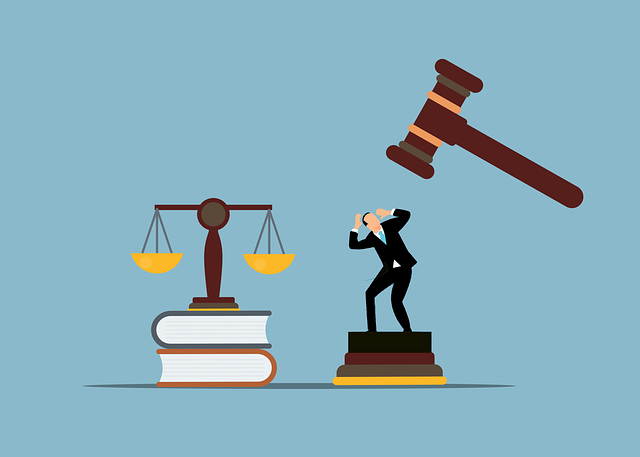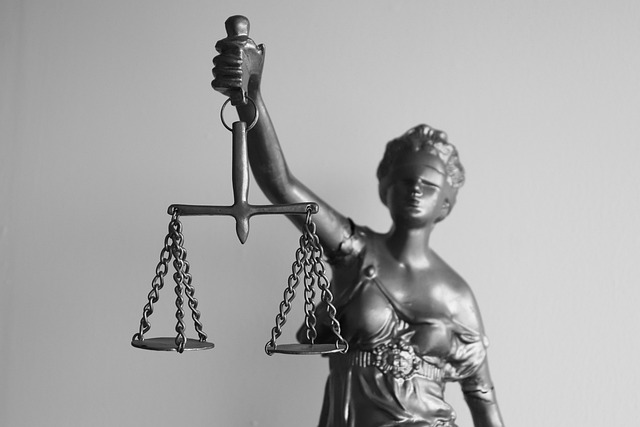The RF Securities industry prioritizes fairness and transparency in employment law disputes through its structured Settlement Process for Employment Law Cases. This process, emphasizing Alternative Dispute Resolution (ADR), offers quicker, cost-effective resolutions compared to trials. It involves specialized techniques like mediation and arbitration, ensuring mutual benefits for employees and employers. The framework protects rights, encourages transparent negotiations, and promotes positive outcomes in cases involving white-collar and economic crimes, maintaining the industry's integrity.
“The RF Securities industry, a cornerstone of global finance, operates under stringent regulations designed to safeguard investors and maintain market integrity. This article delves into the intricate web of RF Securities Industry Regulation, focusing on its key components. We explore the legal framework governing employment law cases within this sector, emphasizing the settlement process as a pivotal tool in dispute resolution. From understanding regulatory obligations to ensuring fairness during negotiations, our guide offers valuable insights for practitioners and industry stakeholders navigating the complex landscape of employment law settlements.”
- Understanding RF Securities Industry Regulations
- Legal Framework for Employment Law Cases
- The Role of Settlement in Dispute Resolution
- Steps Involved in the Settlement Process
- Ensuring Fairness During Settlement Negotiations
Understanding RF Securities Industry Regulations

The RF Securities Industry is heavily regulated to ensure fairness, transparency, and investor protection. Understanding these regulations is crucial for all market participants, from brokers to investors. At its core, this industry is governed by a complex web of laws and rules that dictate various aspects of securities trading, including how disputes are resolved. One significant aspect is the settlement process for employment law cases, which can differ greatly from other types of litigation. These cases often involve high-stakes disputes where employees allege unfair treatment or discrimination by their employers.
The unique nature of RF Securities industry regulations demands a tailored approach to dispute resolution. In contrast to typical jury trials, which are common in many legal domains, the securities sector may opt for more specialized methods. Alternative dispute resolution (ADR) mechanisms, such as mediation and arbitration, are increasingly popular in high-stakes cases. These processes offer a more efficient and cost-effective way to resolve conflicts, often leading to quicker settlements without the need for lengthy courtroom battles.
Legal Framework for Employment Law Cases

The legal framework governing employment law cases within the RF securities industry is robust, designed to protect both employees and employers from unfair practices. This framework includes a comprehensive set of regulations that outline the rights and responsibilities of all parties involved in the workforce. When disputes arise, the settlement process for employment law cases is carefully structured, ensuring fairness and due process.
Understanding this legal landscape is crucial for navigating potential white-collar and economic crimes, which often intersect with employment matters. Skilled legal professionals play a pivotal role in achieving extraordinary results for clients facing employment-related challenges, including general criminal defense strategies. This expertise can significantly impact the outcome of cases involving complex securities regulations and employment disputes.
The Role of Settlement in Dispute Resolution

The settlement process plays a pivotal role in dispute resolution within the RF Securities industry, serving as a crucial alternative to lengthy and often costly litigation. In employment law cases, for instance, settling disputes can offer a more efficient and mutually beneficial outcome for all parties involved. This strategy allows both employees and employers to avoid the intricate and time-consuming nature of legal battles, which can strain resources and prolong resolution.
By engaging in settlement negotiations, stakeholders have the opportunity to achieve extraordinary results that may not be attainable through trial. Skilled mediators facilitate these conversations, helping to navigate complex issues and identify common ground. Ultimately, a successful settlement process can lead to a complete dismissal of all charges, ensuring that both sides find resolution without the burden of an indictment.
Steps Involved in the Settlement Process

The Settlement Process for Employment Law Cases involves several crucial steps designed to resolve disputes outside of a jury trial, often achieving extraordinary results for all parties involved. It begins with the filing of a claim, followed by extensive documentation and fact-finding. The plaintiff or aggrieved party outlines their allegations, providing evidence to support their case. This stage is critical in determining the strength of the claim and potential outcomes if the matter progresses to a trial.
Negotiations then ensue between both parties, facilitated by legal representatives. This process involves back-and-forth discussions aimed at reaching an agreement that compensates the plaintiff fairly for any harm suffered while adhering to legal boundaries. If successful, a settlement agreement is drafted and signed, finalizing the resolution of the employment law case without the need for a jury trial. This approach can be more efficient and cost-effective than litigation, allowing both parties to move forward with their respective businesses.
Ensuring Fairness During Settlement Negotiations

Ensuring fairness during settlement negotiations is a critical aspect of the RF Securities Industry Regulation landscape. As the settlement process for employment law cases evolves, regulators and legal experts emphasize the importance of transparency and equity. This is especially relevant in the context of white-collar and economic crimes, where intricate financial transactions and complex legal arguments are at play.
Negotiations should be conducted fairly across the country, fostering an environment that encourages reasonable resolutions without undue influence or favoritism. The goal is to protect the rights of all parties involved while ensuring winning challenging defense verdicts are achieved through robust and just means. This balanced approach not only upholds the integrity of the legal system but also promotes a more stable and trustworthy securities industry.
The regulation of the RF Securities industry requires a nuanced understanding of employment law within a legal framework that prioritizes fairness and justice. By exploring this landscape, we’ve highlighted key aspects like the importance of settlement in dispute resolution, particularly in employment law cases. The steps involved in this process, coupled with ensuring fairness during negotiations, underscore the need for transparent and ethical practices. Understanding these dynamics is crucial for navigating the complexities of RF Securities industry regulations, ultimately fostering a more secure and equitable working environment. As such, settling employment disputes effectively remains a game-changer in promoting a harmonious professional tapestry.






